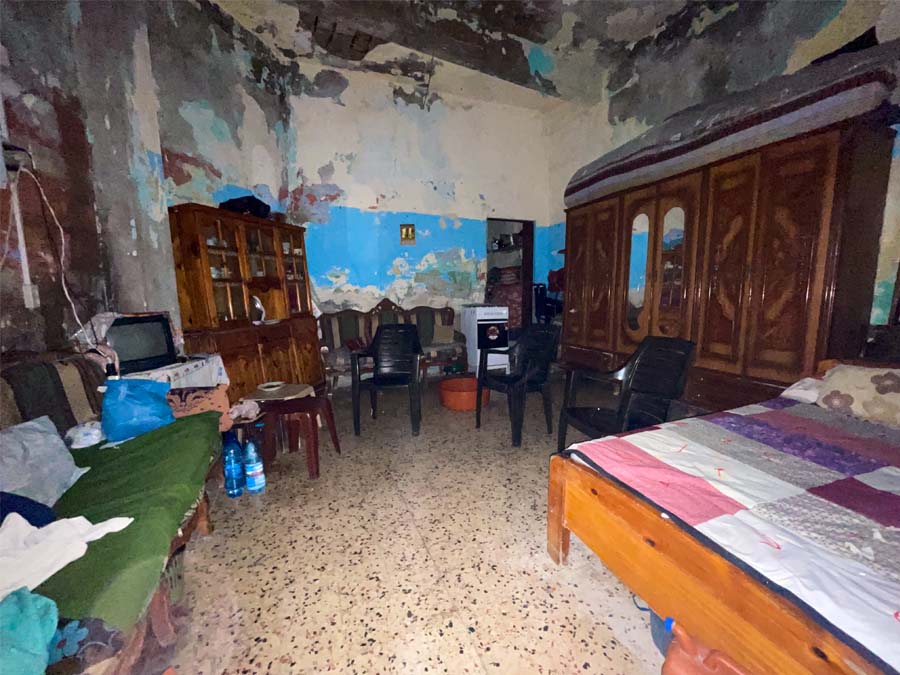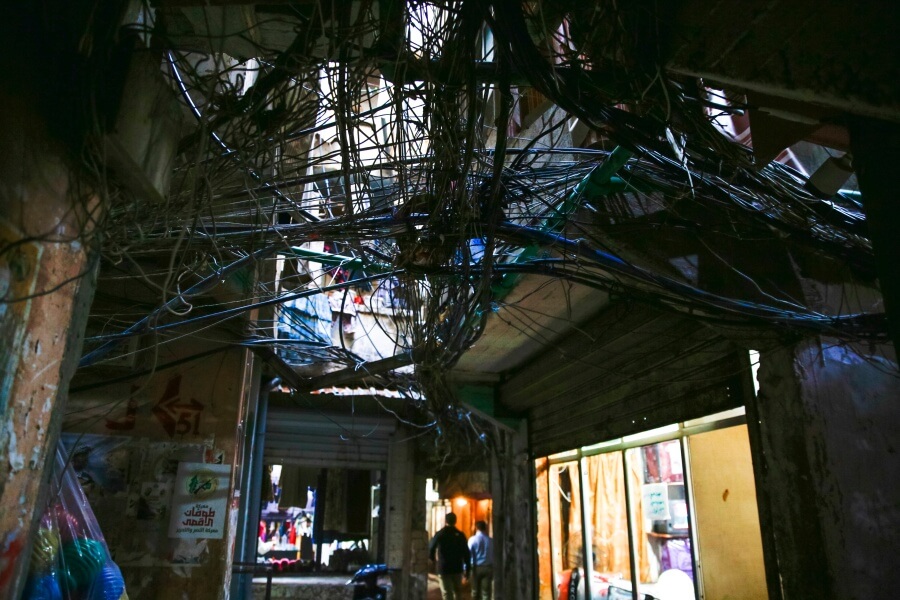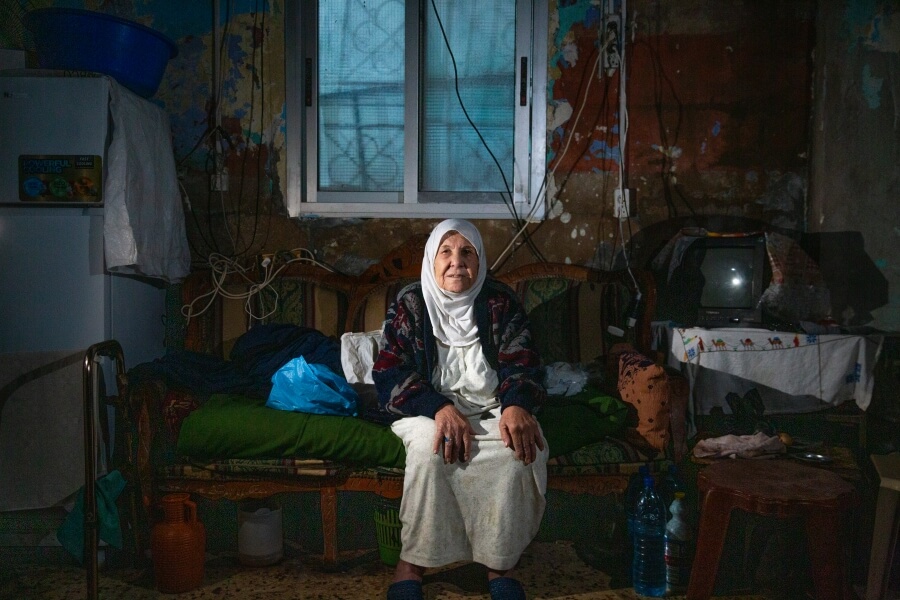"I was 9 years old. When our village was bombed, we had to leave our house. We packed a few pieces of clothes in a small bag and left the house. Me, my aunt and my 7-month-old brother and I walked to the Lebanese border."
. . .
In a dimly lit room where the paint on the walls is peeling off due to dampness, I listen attentively to Aunt Zekiye from Palestine. She tells me about the days when Israel occupied Palestine in 1948, her experiences during and after her migration. I have met many Palestinians before, but I feel very lucky to meet someone who lived through the Nakba, because the number of people who lived through those days is gradually decreasing.
Aunt Zekiye continues to tell: "That day we walked until the evening. When it got dark, we took shelter under a tree and spent the night there. The next day, we reached the south of Lebanon. After a while, when my family arrived, my brother went to Beirut and organized a place to stay. First, we settled in a tent. After a few months, we moved to a small house. When other Palestinians like us arrived, this camp started to be established."

Hundreds of thousands of people live in unsanitary and unsafe houses in the camps.
Although 75 years have passed, Aunt Zekiye tells everything as if it happened yesterday. When I ask her if she remembers her first time in the camp, she says, "I even remember my house and village in Palestine." She goes back to her childhood: "We had a big garden. We used to grow figs, olives, grapes, and various vegetables. We had 12 cows, a few sheep, and chickens. We made our own cheese, and we ate the eggs of our own chickens."
You know, the key is a special symbol for Palestinians. Some families who emigrated in 1948 entrust the key to their homes in Palestine to their children and grandchildren in the hope of returning one day. So I asked Aunt Zekiye if she kept her key or any other memento. "Key? We had to leave in such a hurry that we even forgot the bread we baked in the oven."
When we first entered the house, Aunt Zekiye was watching the news about Palestine on TV. She is constantly following what is happening. When I told her that people all over the world are demonstrating for Palestine, she said, "Yes, I follow it too. It makes me very happy that people defend us and do not leave us alone. I cry every time I see the news. God willing, one day we will go back."
After half an hour of full conversation, we excused ourselves. Just as we were saying goodbye, the power went out, and the room was in darkness. Aunt Zekiye was not surprised. This situation is very normal in Palestinian camps. Electricity and water installations were built crookedly. You cannot see the sky because of the water pipes, electricity, and telephone cables passing through the already narrow streets. Palestinian refugees spend a lifetime here.

Electricity, water and telephone installations, which expand as the population increases, pose a great risk especially in rainy weather.
When Aunt Zekiye saw the camera next to me, she told me another memory: "One day American journalists came to interview me. I took the camera from their hands and did not give it back. I said, 'This is mine now!' They were surprised and objected. I told them, 'This is exactly what Israel is doing to us. It takes what is ours by force and confiscates it."
This is just the story of one of the people who had to leave their country and live as refugees. Thousands of people like Aunt Zekiye died without ever seeing their home again. Israel was founded in 1948 on hundreds of thousands of stories like Aunt Zekiye's.
